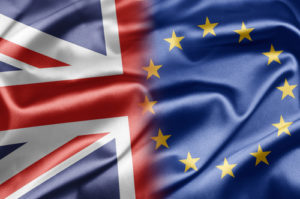 Its been five days since the British people narrowly voted to begin withdrawing from the European Union. Since the decision was announced, the ramifications are being felt across the globe. From an outsider looking in, it may not seem all that big a deal. However, this is arguably the most seismic event in the history of the EU.
Its been five days since the British people narrowly voted to begin withdrawing from the European Union. Since the decision was announced, the ramifications are being felt across the globe. From an outsider looking in, it may not seem all that big a deal. However, this is arguably the most seismic event in the history of the EU.
We will take a look at a few of the major issues and potential ramifications that surround the Brexit decision. The common vein throughout is that it represents a period of uncertainty, not just for the UK and the EU but also for global markets still making a shaky recovery from the 2008 global financial crisis.
So Why Are They Leaving?
The UK has always had a rocky relationship with centralized European authority. As such since they joined the EU in the early 70’s they have demanded – and been awarded – many concessions and exemptions. It’s important to remember that the EU is much more than just a financial/trading bloc. It exerts considerable power over determining shared legislation across it’s member states. The legislation does not always suit every country, and nobody has been more vocal about this that the Brits!
Books have been written about the notion of UK exceptionalism when it comes to Europe. The UK has been known to have an ” island mentality”, and has an especially close relations not just with the US but also the Commonwealth. It may sound a generalization but it’s generally accepted that in terms of relationships, the EU has always come a distant third place.
What Have Been The Immediate Issues Of Brexit?
Despite a turnout of over 70% of the electorate, Brexit won an unexpected victory of 52% to 48%. Yet the contrasts in voting behavior have been incredibly divisive. Rather than the traditional major determinants of voting behavior (i.e. political inclination and material wealth), this has been a very raw and angry response led by the more deprived and alienated regions in the country. Most commentators say that this potential backlash has been long in the brewing. Areas hit hardest by cost cutting austerity measures that have slashed the budgets of these communities were the most vocal.
Constitutionally Scotland – who voted resoundingly to remain in the EU – has seen the First Minister demand another independence from the UK vote. They claim that the Brexit decision is not the wishes of the Scottish people. Similar sentiment is shared in Northern Ireland, with calls being expressed for a potential reunion with the Republic of Ireland. Even strategic yet tiny Gibraltar – long the target of Spanish interests – is considering how to live in the forthcoming Brexit world.
As expected David Cameron has announced he will be stepping down within three or four months. Likely this will lead to a General Election, fought between devastated and confused leading parties. It is likely that Jermey Corbyn will also be forced from the Labour leadership – with no leading candidates to replace him.
Financially the Pound has been massacred on the markets, hitting a 31 year low on the 27th of June with further drops likely. The current market losses are estimated to be around $2.5 trillion. Such losses have obviously seen turmoil in global markets too, yet how well and quickly they stabilize is as yet anyone’s guess.
So Is Brexit Confirmed?
Actually, no. Popular sentiment in the UK is largely in shock, yet is seems like the silent majority have won the day for now. Confusion reigns over what will happen next, however it’s worthwhile remembering that in order to withdraw from the EU the British PM needs to invoke a specific cause in The Treaty Of Lisbon. Considering that the PM is outgoing, whoever replaces him will almost certainly have to call an immediate election. Until this clause is enacted, the UK remains firmly within the EU.
The referendum is not legally binding. Unlike the Scottish independence referendum which was legally binding, no such parameters exist in this instance. The motion would also have to be passed by parliament where cross party support for remaining in the EU is at least 75%. So until the legislative wheels are put into motion – and there’s many calling for them not to be – confusion and political anarchy will continue to reign.
Frustration is running high at the British inability to act, with many of the embittered EU nations calling for the process to be quickened.
What’s Next?
Even when (if?) the legislature announces UK formal withdrawal from the EU, the process will take at least two years and likely longer. Britain needs to renegotiate huge amounts of EU and domestic treaty arrangements and laws, a process that will likely be especially convoluted and bitter.
In the meantime there’s no clear direction where this crazy state of affairs could be headed next. While a smooth and easy withdrawal is feasible, right now few would bet on it. Expect more confusion, turmoil and drama over the coming months.
UPDATE: Since this article was written, the credit rating for the UK has been lowered two notches from AAA by the ratings agency, Standard & Poor.
